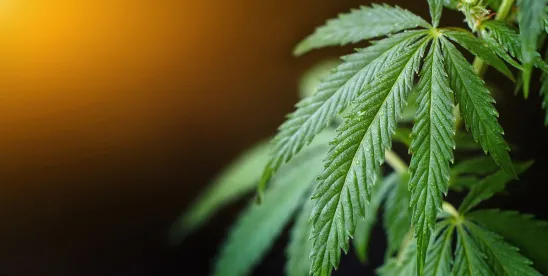According to a report from Bloomberg News, the U.S. Department of Health and Human Services (HHS) is officially recommending to the U.S. Drug Enforcement Agency (DEA) that marijuana be moved from Schedule I to Schedule III under federal law. The move follows a directive issued by President Biden last year that Secretary of Health and Human Services Xavier Becerra “initiate the administrative process to review expeditiously how marijuana is scheduled under federal law.”
Although many in the industry consider the move to be long overdue, the development represents a watershed moment in the history of cannabis in the last century.
The Mechanics and Next Steps
Schedule I substances are considered to have a high abuse potential with no accepted medical benefit. Schedule III substances, on the other hand, have “a moderate to low potential for physical and psychological dependence.” Current Schedule III substances include benzphetamine, phendimetrazine, ketamine, and anabolic steroids.
The next step is for DEA to determine whether to re-schedule marijuana. Although HHS’s recommendation would be binding on DEA as to “scientific and medical matters,” the decision to reschedule rests with DEA. Rescheduling marijuana will require the DEA to undertake the potentially-lengthy formal rulemaking process required by the Administrative Procedures Act, including notice and comment of the proposed rule before it can be finalized, and the process can be subject to court challenges.
The Implications of Rescheduling
The potential change would be enormously consequential. From alleviating the enormous tax burdens cannabis businesses face under Section 280E of the Internal Revenue Code and prompting additional federal guidance on how banks and other financial institutions can work with cannabis companies to the potential for costly FDA compliance for medical cannabis operators, we anticipate quite the journey ahead as DEA evaluates HHS’s recommendation and proceeds with the expected administrative rulemaking process under the Administrative Procedures Act.
Cannabis stocks immediately rallied on the news while industry observers turned their eyes to DEA – and an even more momentous step for the cannabis industry.
Let’s be clear: The rescheduling of marijuana is far from a foregone conclusion. DEA has never been a friend to the marijuana industry. But to be equally clear: This is huge.
The news has received mixed reactions from industry folks and politicians. Many applaud the HHS recommendation, but several industry groups, while recognizing it’s a good step forward, insist that de-scheduling and regulating like alcohol is the only way to go. But more in-depth analysis may be the place for that.







 />i
/>i

